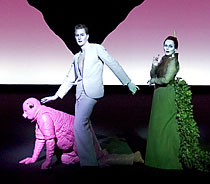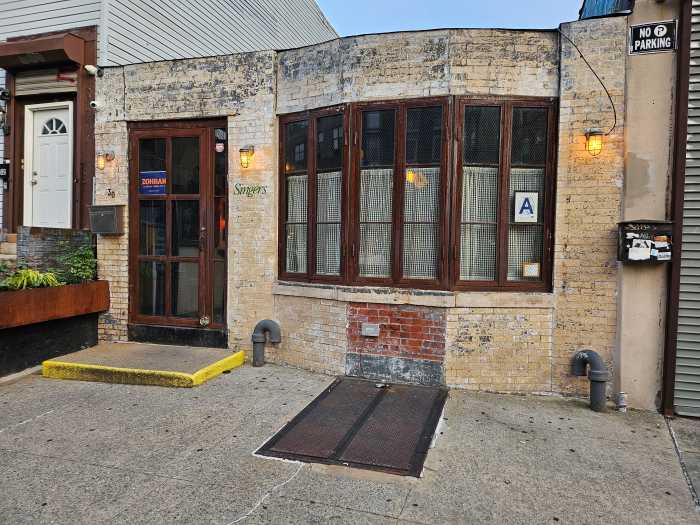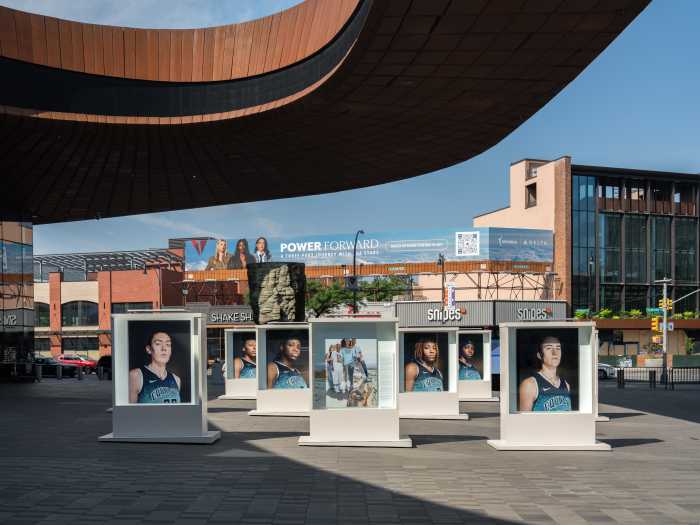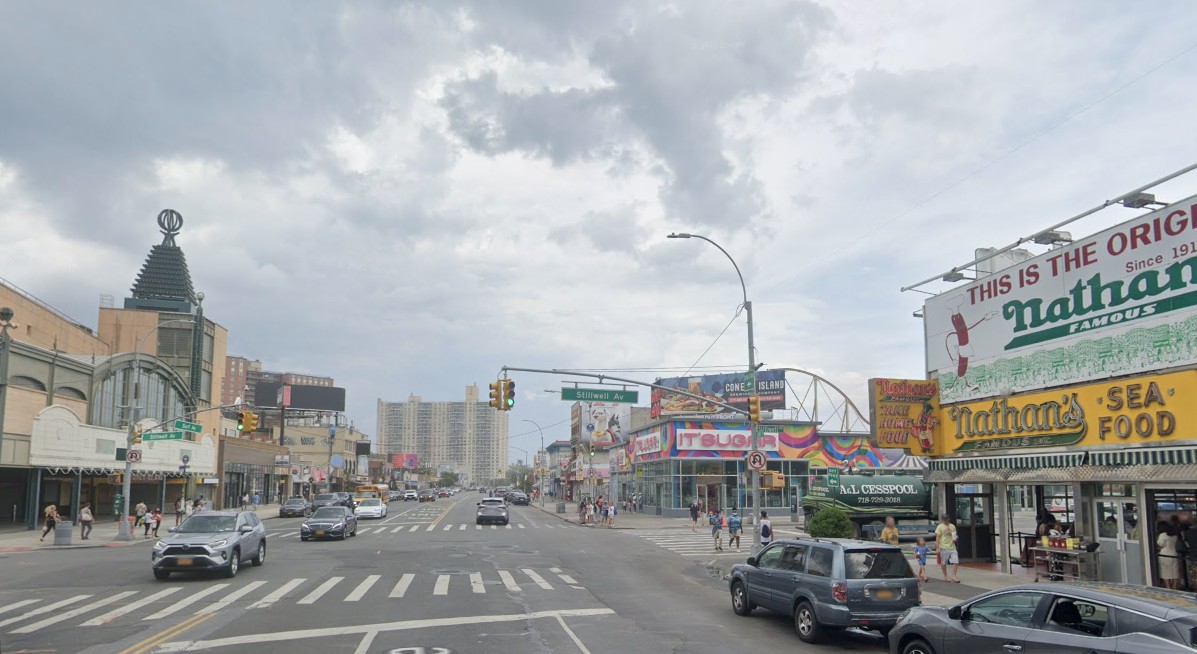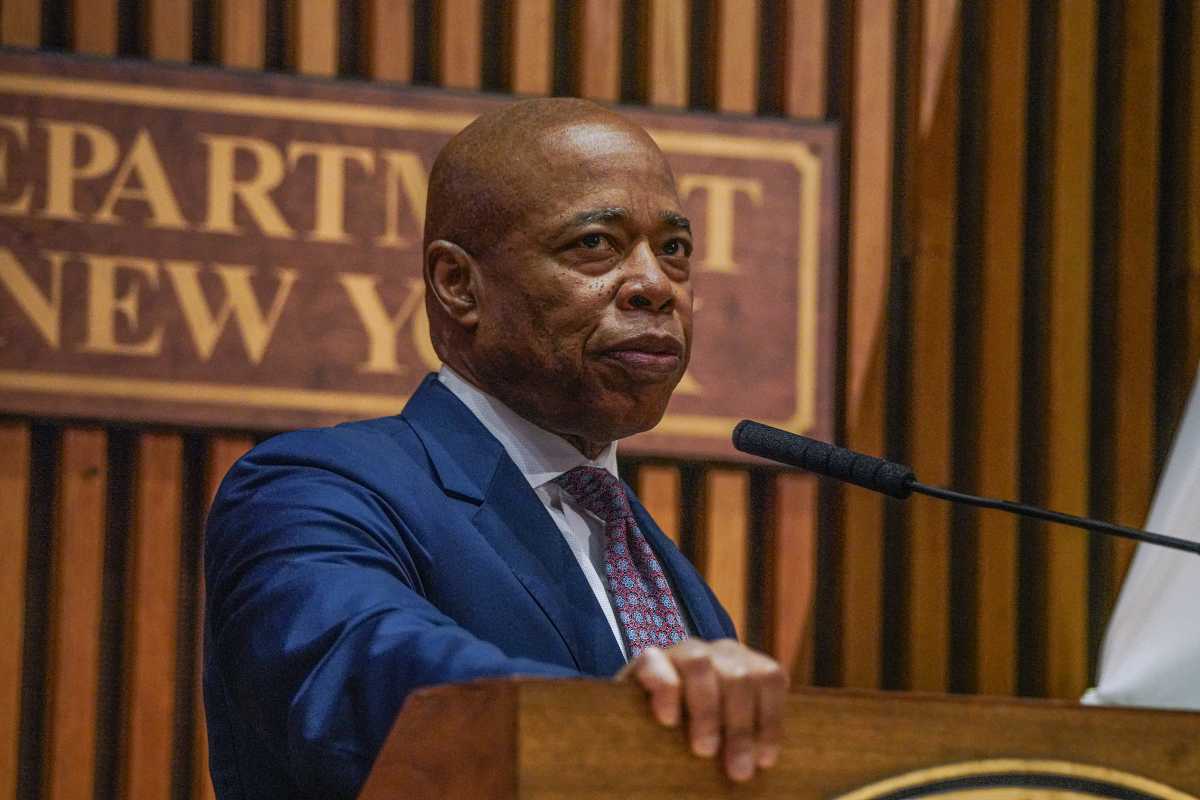Henrik Ibsen’s play "Peer Gynt"
is one of those canonical stage works that feels fresh and new
no matter what the interpretation of its director.
Ibsen’s verse drama, which follows the exploits of an Everyman
named Peer Gynt – a character whose exuberance, arrogance, inventiveness,
crudity and charm paint him as undeniably human – was most recently
seen at the Brooklyn Academy of Music in 1994 in the great Swedish
director Ingmar Bergman’s problematic staging. Bergman found
the play as an absurdist work, perhaps the first of its kind;
certainly a valid reading, although the four-hour trip through
the startling inventiveness that’s Bergman hallmark was marked
by several bumpy detours.
From April 11-15, a completely different (but also four-hour-long)
"Peer Gynt" will play BAM’s Opera House: it’s a stylized
view of Ibsen’s drama, by American director Robert Wilson, which
played to acclaim in Ibsen’s native Norway.
Wilson, who is no stranger to landmark theatrical and opera productions
(he collaborated with composer Philip Glass on such visionary
musical-theater works as "Einstein on the Beach" and
"The CIVIL warS") has put his singular stamp on Ibsen’s
plays for awhile, as he admitted in an exclusive e-mail interview
with GO Brooklyn.
"I have been interested in Ibsen for a long time,"
Wilson says. "I did productions of his ’When We Dead Awaken’
and ’The Lady From the Sea’ in the 1990s, and I’ve always been
fascinated by his particular brand of modernism, which can be
psychological and very stylized at the same time."
That stylization is perfect for Wilson, whose famous – some might
call them infamous – visual stylings, like minimalist actors’
gestures and movements and innovative lighting, are immediately
recognizable.
Wilson sees Peer as "a universal man, a traveler, a searcher,
even though it is not quite clear what he is searching for. Because
he is so open to experiences, he can be part of our unconscious
minds, not necessarily because we identify with him, but because
in some way he is already part of us," he notes.
Wilson’s chance to direct "Peer Gynt" in Norway came
as a complete but happy surprise.
"I had never worked [there], so when I was asked to do ’Peer
Gynt’ in Ibsen’s home country, I felt honored and challenged
at the same time," he says. "It seemed like such an
extraordinary gesture for the Norwegians to ask an American director
to produce one of their national literary treasures, especially
in the context of the centennials of Ibsen’s death and the celebrations
for 100 years of Norwegian independence as a national state [in
2006]. When the play opened, I was overwhelmed by the warmth
of the audience’s response."
Obviously, part of that warm response was due to familiar Norwegian
actors.
"Some of the actors had been in Ibsen productions before,
of course – this was Norway, after all," he notes. "I
think it was a bit strange for them at first, especially as there
is a strong naturalist, psychological tradition of staging Ibsen
that is quite far from my approach.
"They had a hard time understanding why I would start with
movements first, adding the text only at a later stage,"
said Wilson of his production, which is performed in Norwegian
with English titles. "But once they got used to it and realized
the freedom formalism can provide, there were incredible performances."
Wilson’s credo for staging works can be summed up succinctly:
"I do not like to either do period pieces or belabored modernizations,"
he says. "Good works have a universal appeal that makes
these different approaches equally inadequate."
How will this "Peer Gynt" travel across the Atlantic,
since the design of the BAM Opera house is different than those
Norwegian theaters?
"This was originally a co-production between theaters in
Oslo and Bergen, Norway, which have different stages," Wilson
explains. "Some adaptability was built into the production,
but of course we had to make some further adaptations to stage
it at BAM, since the stage here is less deep than in either of
the Norwegian theaters, which makes some of the back lighting
I use difficult. And when you change the depth, all other dimensions
have to be adapted, too, to keep a sense of proportion."
While his "Peer Gynt" is unveiled in Brooklyn, a revival
of Wilson’s production of Richard Wagner’s opera "Lohengrin"
returns to the stage of the Metropolitan Opera House in Manhattan
on April 17. Wilson remains as committed to making sure his stagings
"work" years after they are first premiered.
"I always oversee revivals, especially if some time has
passed since the original performance," the director explains.
"Light is important for me. Technologies change all the
time, and there are so many possibilities today that light designers
did not have five or 10 years ago.
"Productions can quickly look dated," admits Wilson.
"I always have to keep myself from turning a revival into
a new production, which theaters are always reluctant to do.
But I still like to spend as much time as I can making adjustments.
Most often, I wish I had more time."
"Peer Gynt," directed by Robert
Wilson, will be performed at the BAM Howard Gilman Opera House,
30 Lafayette Ave. at Ashland Place in Fort Greene, on April 11,
13-15 at 7:30 pm and April 16 at 2 pm. Tickets are $80, $65,
$45 and $25. For more information, visit www.bam.org.


